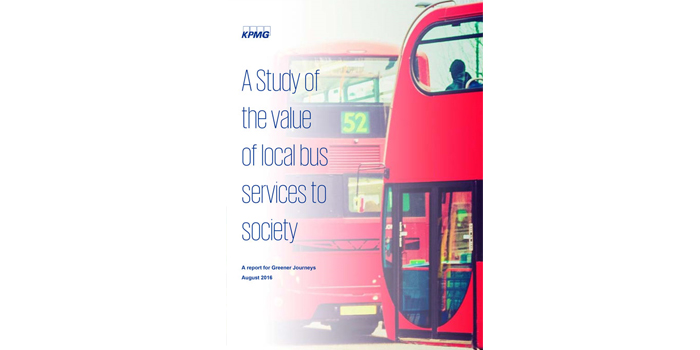October 24 2016
Building successful and sustainable communities requires the pursuit of policies attuned to economic, social and environmental objectives. This is especially true for transport policy and investment decisions which require a balanced approach to delivering economic prosperity, supporting social inclusion and protecting the natural environment.
Whilst much has been done over the last 10 years to improve our understanding of the wider economic impacts of transport investment and policy decisions, much less has been done to develop a better understanding of the wider social and environmental impacts of transport investment and policy decisions.
In this report we develop new evidence on the significance of local bus service connectivity to achieving economic, social and environmental objectives. The work takes a holistic view of the impact that local bus services have on the ability of households to participate in economic and social activities and ultimately on levels of economic, social and environmental deprivation.
The analysis shows that neighbourhoods with better local bus connectivity are, all else equal, more likely to have lower levels of economic, social and environmental deprivation.
The latest statistics produced by the Department for Transport show that more than 5 billion journeys were made by bus in Britain in 2014/15. The journeys were made on a wide range of services for a wide range of reasons: 23% of journeys were made to commute to and from work, 16% to get to and from education, 26% for shopping, 10% for personal business such as going to the doctors, and 21% for other socially orientated activities.
Local bus services are particularly important for those without access to other forms of transport, with those who do not have access to a car making around 25% of all of their travel by bus. They are used more by the young and those over the age of 70 and are used more in towns and cities.
Analysis undertaken on behalf of the Department for Transport shows that where local bus services are withdrawn, some passengers are able to make alternative transport arrangements but for 1 in every 5 journeys a practical alternative does not exist1. For some, this may mean not taking a job, not taking advantage of educational opportunities, not taking care of heath needs or simply not seeing friends and family. With almost 1 in 4 people in the UK at risk of social exclusion and almost 1 in 4 households in Britain without access to a car, the importance of local bus services to enabling households to participate in society is clear for all neighbourhoods and not just the most deprived.
